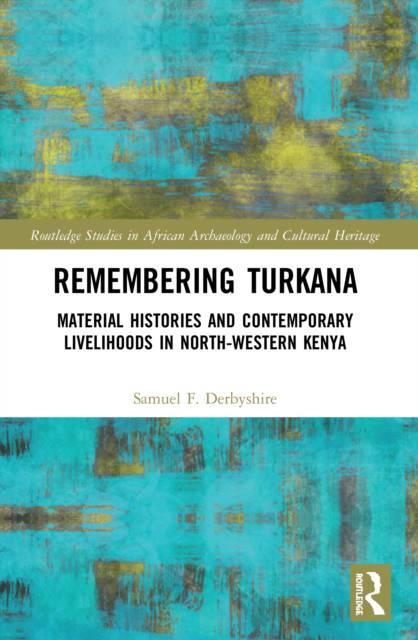
- Retrait gratuit dans votre magasin Club
- 7.000.000 titres dans notre catalogue
- Payer en toute sécurité
- Toujours un magasin près de chez vous
- Retrait gratuit dans votre magasin Club
- 7.000.0000 titres dans notre catalogue
- Payer en toute sécurité
- Toujours un magasin près de chez vous
Remembering Turkana
Material Histories and Contemporary Livelihoods in North-Western Kenya
Samuel F DerbyshireDescription
This book explores aspects of the socio-economic and political history of the Turkana of northern Kenya, examining the making and remaking of the regional economy via the trajectories of socio-material interaction that have structured key practices, relationships and livelihoods over the past century.
Traversing Turkana's constituent livelihoods and examining the historical relationships between them in relation to shifting economic, ecological and political factors, the book asks what perspective emerges from an in-depth understanding of the everyday things that have taken part in processes of substantial socio-cultural transformation. By setting out a series of new examples established through long-term research in the region, it offers a characterisation of Turkana's iterative transformation as the articulation of a set of long-term continuities. Investigating quotidian personal and community histories, it argues that Turkana's complex network of livelihood interactions has, on the whole, strengthened over time through its continual reformulation, as identities, livelihood practices and social institutions have been re-imagined and reshaped with each new generation in order to reconstruct accumulated memory and knowledges.
Remembering Turkana provides a wide-ranging socio-historical overview of the Turkana region and people, situating critical contemporary issues within diverse bodies of literature. The characterisation of long-term change and continuity, as articulated and enacted via material culture production, use and exchange, that it offers will be of significance to a broad array of scholarly disciplines, including archaeology, history, anthropology and political science.
Spécifications
Parties prenantes
- Auteur(s) :
- Editeur:
Contenu
- Nombre de pages :
- 254
- Langue:
- Anglais
- Collection :
Caractéristiques
- EAN:
- 9780367523305
- Date de parution :
- 29-04-22
- Format:
- Livre broché
- Format numérique:
- Trade paperback (VS)
- Dimensions :
- 156 mm x 236 mm
- Poids :
- 498 g

Les avis
Nous publions uniquement les avis qui respectent les conditions requises. Consultez nos conditions pour les avis.






